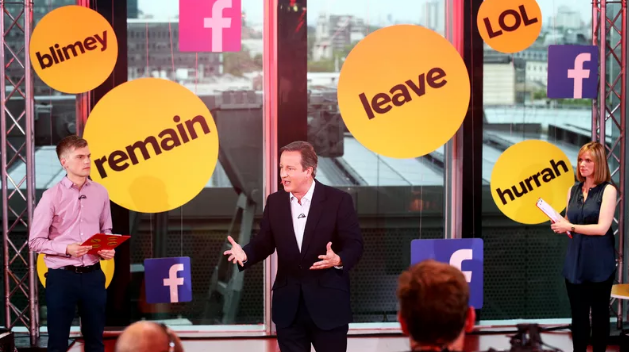Brexit’s Effect on Industry, BuzzFeed’s European Content Strategy, Pew News Consumption Study, Twitter Moments Update, InDesign CC Tip: User Interface Improvements
Welcome to Technology for Publishing’s roundup of news and tips for media industry pros! This week, we’re sharing stories about the fallout of Brexit for media and tech companies, how BuzzFeed is customizing its content for European markets, the findings of a Pew Research survey on modern news consumption, Twitter Moments’ fail, and more.
- Brexit has some London-based tech and media companies putting expansion plans on hold—and even contemplating leaving the U.K. altogether—given uncertainty around future trade agreements with European Union member states and potential changes in the regulatory environment. A Recode report said while it’s unlikely there will be a mass exodus, Britain’s exit from the EU could jeopardize London’s reputation as the media capital of Europe. Carter Pilcher, a video company executive whose offices are located next to Facebook’s and Google’s London operations, said in the article that “the safest thing would be to put your operation in France or Germany” and that he is “almost certain that the EU will not allow TV networks created outside the EU to broadcast because media is too precious to be regulated outside the trade zone.”
- As leading publishers ramp up their globalization efforts (see details on TFP CEO Margot Knorr Mancini’s related article below), they’re grappling to develop the right content strategies for the different markets they’re targeting, Digiday reported. What works in the U.S. doesn’t necessarily translate in the U.K. or France, for instance. BuzzFeed is focused on “cracking that code,” the article said, highlighting lessons learned so far. Luke Lewis, head of European growth, noted while finding the “content sweet spot” for individual countries is key, the company is also trying to move beyond its reputation as primarily a site for viral content by expanding its investigative reporting team. “There are big cultural differences in Germany. When people go online, they often want to learn something rather than scroll through sites like BuzzFeed for entertainment,” he said.
- Nieman Lab and others offered takeaways from Pew Research Center’s just released survey on modern news consumption, one being—not surprisingly—that there are notable differences in the reading and viewing habits of younger vs. older consumers. It found 54% of 18- to 29-year-old respondents like to get their news digitally, while the same is true for only 38% of those between the ages of 30 and 49 and 15% of those between 50 and 64. And there’s also a considerable gap when it comes to mobile, with 70% of 18- to 29-year-olds saying they prefer to get news on their mobile devices, compared with 53% of 30- to 49-year-old respondents and 29% of those 50 to 64 years old. Other findings: News viewers prefer television over online video, only 20% of respondents get news from print newspapers, and only 20% trust the information they get from online and print news organizations.
- Twitter Moments, the platform’s “hub” for trending content, is languishing as advertisers fail to see how its $1 million price tag will produce returns, according to Digiday. Launched six months ago, the idea was to provide a way for brands to showcase their tweets, photos, videos, and GIFs, it said. But because Moments lacks reporting on impressions and engagements, no one is jumping on board. “I don’t know any brands buying it,” one ad agency executive said in the article. Said another, “A lot of the media spend Twitter used to be getting is going to Snapchat.”
On the Technology for Publishing Blog
- InDesign CC 2015.4 Tip: For users who spend long stretches of time designing and editing InDesign projects, Adobe modified the user interface in its latest CC release to reduce eye strain. This week’s tip from Monica Murphy has the details. To learn about all the new and improved features in v2015.4, download our updated handbook!
- Don’t miss: In her latest article, TFP CEO Margot Knorr Mancini discusses the push for global expansion among top publishers and what that means for content and tech strategy ahead.
- Also see our latest infographic pick highlighting what to expect in mobile app development in the coming months, including projections for IoT integration.
Photo: Getty/Recode
Visit our blog for highlights of interesting and noteworthy stories from the publishing world every Friday, and sign up for TFP’s This Week in Publishing newsletter. Think we missed something great? Let us know! Leave a comment below or drop us a note.
Posted by: Monica Sambataro



